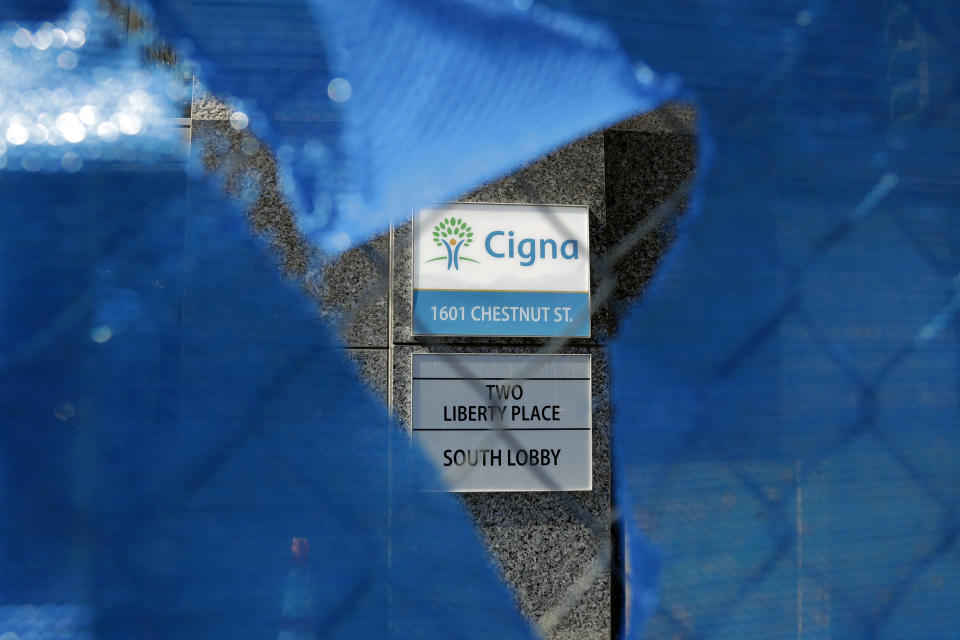Cigna, Humana become newest major insurers to cover COVID-19 treatment costs
Cigna (CI) and Humana (HUM) have announced they will cover treatment for all members who become COVID-19 patients, including in-network and out-of-network, making them the first major insurers to announce such broad coverage amid the global pandemic.
The coverage is valid for commercially insured, self-insured and Medicare Advantage members. Employers have the option to opt-out for self-insured plans. Cigna said the waiver will last until May 31.
Humana said it applies to :FDA-approved medications or vaccines when they become available. There is no current end date. Humana will reassess as circumstances change.”
“Our customers with COVID-19 should focus on fighting this virus and preventing its spread,” president and CEO David Cordani said in a statement. “While our customers focus on regaining their health, we have their backs. Our teams of experts are working around the clock to support frontline heath-care workers, increase flexibility for hospitals, and deliver greater peace of mind to those we serve.”
In a statement Sunday, Humana president and CEO Bruce Broussard said, “We know we’re uniquely positioned to help our members during this unprecedented health crisis. It’s why we’re taking this significant action to help ease the burden on seniors and others who are struggling right now. No American should be concerned about the cost of care when being treated for coronavirus.”
The U.S. now leads the world with more than 130,000 cases, and more than 1,000 deaths, a majority of which are in New York State and the New York Metro Area.
CVS Health (CVS) announced its Aetna health insurance business would cover inpatient treatment, though only for in-network treatment. It is unclear how the treatment will be reimbursed for the providers.
Cigna has gone a step further, including out-of-network treatment and has said it will reimburse providers at in-network or Medicare rates, or based on any other applicable state regulations.
In addition, Cigna said it is deploying hundreds of on-staff clinicians, including physicians and nurse practitioners, to join the team of health care professionals that are responding to the outbreak through tele-health with its partner MDLive.
Insurers across the country have agreed to waive co-pays and costs for their members related to tests and visits for those tests, as well as, in some cases, telehealth visits. Some have also agreed to waive pre-authorization for moving patients between critical and non-critical care settings, asking instead that hospitals notify the insurer of any changes within one business day.

The Centers for Medicare and Medicaid Services has also announced an expansion of coverage. Self-insured plans managed by major insurers have had the option of opting in or out of the coverage offered.
But the tradeoff for coverage now could come in the form of a cost increase in insurance in the future.
America’s Health Insurance Plans (AHIP), the national insurance trade group, recently penned a letter to Congress asking for a mitigation strategy to avoid premium hikes in the future. There have already been concerns about such hikes, with California’s insurance program estimating hikes for the upcoming plan year ranging between 4% and 40%.
The average inpatient cost per day in the U.S. is about $2,000, and some estimates place a total inpatient visit cost average at $22,000. The Kaiser Family Foundation estimates inpatient costs for COVID-19 to be within that range, topping $20,000.
Of that total, depending on the insurance plan, patients could be on the hook for the entire portion of their deductible plus the additional costs of interacting with an out-of-network individual— which plays a role in the surprise-billing debates.
Anjalee Khemlani is a reporter at Yahoo Finance. Follow her on Twitter: @AnjKhem
Read the latest financial and business news from Yahoo Finance
Follow Yahoo Finance on Twitter, Facebook, Instagram, Flipboard, SmartNews, LinkedIn, YouTube, and reddit.
